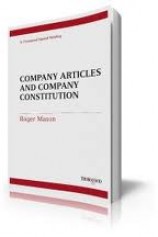Stop rollover loans in Vietnam
Stop rollover loans in Vietnam as per Official Letter 7059/NHNN-TTGSNH of State Bank of Vietnam
Post date: 30-09-2014
18,144 view(s)
 Rollover loan is a loan where the bank allows a borrower, after a particular period of time has passed, to continue owing money after repayment date a loan where the borrower agrees to pay interest at a particular rate, and to pay back the money at a particular time.
Rollover loan is a loan where the bank allows a borrower, after a particular period of time has passed, to continue owing money after repayment date a loan where the borrower agrees to pay interest at a particular rate, and to pay back the money at a particular time.
On 26 September, 2014, State Bank of Vietnam has issued an Official Letter N7059/NHNN-TTGSNH to give some opinions with respect to rollover loan of credit institutions and foreign bank branches as follows:
1. Credit institutions, foreign bank branches and clients enter agreement with loan term in accordance with sub-article 2 article 3 and article 10 of regulations on lending by credit institutions to clients in connection with Decision No.1627/QD-NHNN dated 31 December 2001 of State Bank of Vietnam.
Notes:
- Sub-article 2 Article 3: “Loan term means the period of time calculated from the date on which the client commences to receive the loan funds to the date on which principal and interest have been repaid in full as agreed in the credit contract between the credit institution and the client.”
- Article 10 Loan term: “A credit institution and its client shall agree on a loan term based on the cycle of production or business, the period for recovery of investment project capital, the repayment capacity of the client, and the capital sources of the credit institution which are available for lending. In the case of Vietnamese and foreign organizations, the loan term shall not exceed the remaining duration of operation pursuant to the decision on establishment or operating licence in Vietnam; and in the case of foreign individuals, the loan term shall not exceed the permitted period of residence of the foreigner in Vietnam.”
2. Conducting collection of full principal and interest upon maturity as agreed in the loan agreement signed by credit institutions and foreign bank branches and clients, do not rollover all or a part of the principal.
3. If the case rollover loan was made, credit institutions and foreign bank branches must enter agreement with client for amendment of such loan agreement ensuring the consistent with provisions mentioned in point 1, 2 above.
Similarly, some banks normally extend the loan term for new term on maturity by a loan extension agreement. It is seem similarly to be a rollover loan mentioned by this Official Letter, these banks shall collect full principal and interest upon maturity as agreed in the loan agreement, do not extend loan term for new loan term.
In the case of a client without the ability to repay all principal and/or loan interest on the dates agreed in the loan agreement but the bank assesses the client as being able to repay within a certain specified time after the loan term, the bank may consider extending the loan term for a period consistent with the funding source for repayment of the client. The whole of the outstanding principal of a client having a restructured debt shall be classified into the appropriate debt group in accordance with regulations on classification of debts of the State Bank of Vietnam (article 22 of Decision No.1627/QD-NHNN of State Bank of Vietnam).
On 11 June 2012, State Bank Of Vietnam issued Official Letter 3470/NHNN-TTGSNH, in which the bank is permitted to proceed with rollover loan agreements signed until State Bank of Vietnam issue new provisions of loans of the bank to client
Finally, from signing date of aforesaid Official Letter, credit institutions and foreign bank branches in Vietnam must stop rollover loans.
Lawyervn.net
Relate News
- › Regulations on loans between companies in Vietnam
- › Procedures for registration of foreign loans borrowed by enterprises in Vietnam
- › Vietnamese banking regulations in August 2014
- › Opening ordinary account of organization in Vietnam requires signature of chief account
- › All credit institutions authorized to provide foreign exchange services in Vietnam are required license conversion
- › Use of capital account of foreign direct investment in Vietnam
- › Use of foreign currency accounts and VND account in Vietnam
- › New legal documents of Vietnamese banking sector in July 2014
- › Foreign exchange control on business activities of prize electronic gambling for foreigners in Vietnam
- › Foreigners are not permitted to deposit foreign currency cash in saving accounts at credit institutions














Send your comment